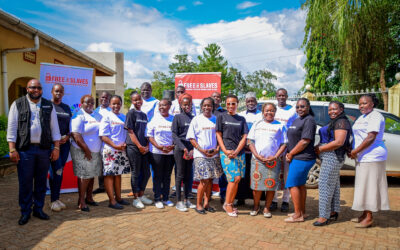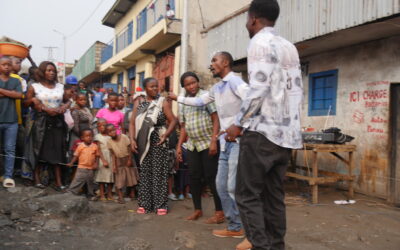“My story is hard to tell,” says Benita Furaha, a trainer at a dressmaking training center in Rubaya, Democratic Republic of the Congo.
Benita’s parents died when she was 13. Her older brother threatened to starve her or to send her out of the house if she couldn’t contribute to household expenses. One option was to find a husband. Instead, she went to work in the mines.
“Every morning, I transported and sold sorghum juice to the quarry workers,” Benita recounts. “I also transported minerals from the quarry. I worked from 6 a.m. to 6 p.m. and I hardly earned $1 per day.” Benita was also a victim of sexual violence.
In 2012, Benita met community workers from the Free the Slaves partner organization ASSODIP. They encouraged Benita to leave her situation and join the group’s dressmaking center in Rubaya. After several meetings including ASSODIP activists, Benita and her older brother, Benita left the mine to learn dressmaking.
Since then, her life has changed. Benita spent three months in learning dressmaking skills. After the training, she joined the dressmaking workshop in the Rubaya market. At the same time, she took reading and writing classes. She mastered dressmaking skills and became a good seamstress. Benita explained that the dressmaking allows her to earn a decent and honest living.
Benita was able to save enough money to buy two goats and eight chickens. Recently, ASSODIP hired her as the dressmaking trainer for survivors of gender-based violence at the ASSODIP training center in Rubaya.

“I love my job and I want other gender-based violence survivors to learn dressmaking and earn a living like I do. I thank ASSODIP and its partners for supporting slavery survivors.” Benita says. Now, Benita is married, enjoys a good reputation and serves as a role model in Rubaya.

Learn more online about our program in the DRC here.
See more inspiring stories of individuals and entier communities overcoming slavery here.


